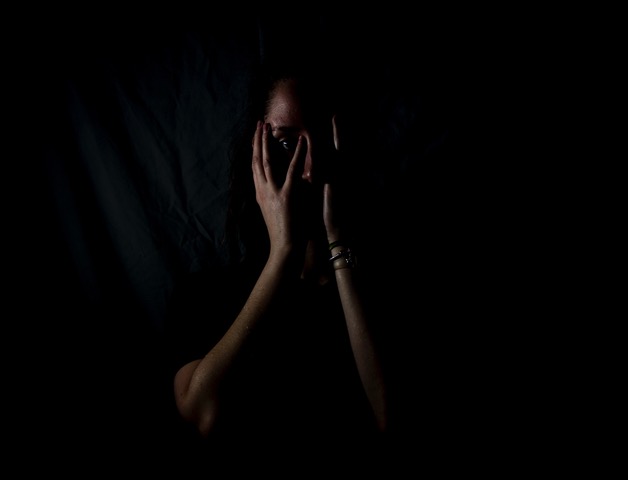Ostrich

Ostrich

I’ve lived most of my adult life either ignoring the fact that I have PTSD or flat-out denying its impact.
Why would anyone want to admit they’re diagnosed with Post-traumatic Stress Disorder―especially when it’s military service-connected? According to Hollywood (and they know everything), anyone with PTSD is, at best, either utterly incapable of basic human functioning or, at worst, is one spilled coffee or cutoff in traffic away from shooting up a mall.
I can certainly live without ignorance-based fear and judgment, especially considering that―unlike some of my fellow Veterans―I’m a Black Woman with PTSD. That means that despite my symptoms―depression, anxiety, suicidal thoughts, etc. – my trauma can only be seen once I’ve passed the Angry Black Woman Test™.
I often don’t.
I’m not sure why the Universe decided to make me the ant in its cosmic magnifying glass, but let me state for the record that I am not a fan.
You know what else I’m not a fan of? All the masking I did for the benefit of others.
I started faking it not long after I was released from active duty. I returned home looking and feeling nothing like the person I was before I enlisted. I was a shell of my former self―unrecognizable in my own eyes, a foreigner in my hometown’s once-familiar, predictably safe environment.
The ambitious, optimistic girl with dreams, intelligence, and arrogance to match was gone. I looked everywhere for her but couldn’t find her. She wasn’t in the books she once read and loved or the stories she used to write. She wasn’t in the music she used to listen to, and she wasn’t in the friends she once had.
She couldn’t even be found in her reflection.
She was gone.
I was gone.
Missing, without a trace, and no hope of ever being seen again.

It might not have been as terrible had others not been so wrapped up in their need to see themselves only in my old reflection, but their need blinded them. They tortured me with it. They choked me with it. They obliterated me with it.
Everywhere I turned, I was constantly expected to be “on,” despite how obviously “off” I was. More often than not, I endured the benevolent cruelty of people who never passed up an opportunity to remind me of who I once was, as if I had magically forgotten. Whether it was someone going out of their way to tell me what they remembered me once doing, what they remembered me once saying, or what they remembered me once liking, folks around me made sure I knew that even if I had to fake it, they could only accept the “me” I used to be.
Because for them, the pretense was far more palatable―and far more comfortable―than the truth.
And when the “friendly reminders” failed to do the trick, my sullen, withdrawn joylessness would be openly and relentlessly reprimanded―with the belief that shaming me for being inexplicably moody, breathtakingly angry, and completely closed off would somehow guilt me out of doing it.
Everyone was so busy searching for The Girl I Once Was that they never saw The Woman PTSD Forced Me to Become.
I got so tired of being told that the answer to my then-yet-to-be-diagnosed mental illness was to “go to church more,” “pray more,” “try harder, stupid,” and “just stop doing it” that I started lying. Lying was easier. Lying helped me avoid questions I couldn’t answer. Lying helped me avoid articulating a problem I couldn’t put into words.
Lying allowed me to ignore the grief, the anger, and the shame I felt over my inability to “stop doing that,” as if my PTSD symptoms were little more than a desperate act for attention instead of an earsplitting cry for help that I was too paralyzed to admit I needed and had no reason to suspect I’d receive, even if I had.
Lying meant I could erase my time in the military and start with a clean slate―one that would hopefully get me back to The Girl I Once Was that I so desperately wanted to be again.
I believed that if I tried hard enough and wanted it enough, I could return to being that Girl because if I couldn’t, I’d have no reason to live.
And if I tried to kill myself again, I would ensure I succeeded.
So, I hunkered down, put my head in the sand, and tried with all my might to breathe new life into the body of The Girl I Once Was.
Except there was one small problem: The Girl I Once Was had long since perished. The moment PTSD sank its fangs into me, The Girl I Once Was took her last breath. No amount of wishing, dreaming, or masking would ever bring that Girl back.
If I wanted to survive, I had to figure out who The Woman PTSD Forced Me To Become was and what she needed.

And it’s been about as awful as you could imagine.
I had to cut ties with everyone: Friends I once treasured, lovers I once enjoyed, and family I once liked because healing rarely comes without sacrifice, and sacrifice rarely comes without suffering.
I had to learn to stop giving what I never received.
And I had to learn that I’m only “too much” for those who know they’ll never be enough.
The truth is, it’s been difficult for me to accept The Woman PTSD Forced Me To Become because part of me hates her for existing in the first place.
I also haven’t had the easiest time accepting my “new normal”―one that binds The Woman and me together ‘til death do us part.
Yet here she is, hands outstretched, offering to help me recover some semblance of what I lost. And maybe―hopefully―help me find something new, too.

Kameko Thomas
About the Author
Kameko Thomas is a writer and disabled neurodivergent (Autism, ADHD, PTSD, OCD, MDD) Black woman living and working at the intersections of race, gender, and invisible disability. She is the Principal Writer + CEO of Vonem Creative Media, a strategic communication and narrative storytelling firm built to create a more inclusive world for neurodivergents. Kameko has a BA in English from Wiley College and an MA in English & Creative Writing from Southern New Hampshire University, where she was selected to join Sigma Tau Delta International English Honor Society.


Love love love, so glad I saw this. I though about writing a book called “I remember me’, but I haven’t healed yet and didn’t know where to start. Thank you for responding.